Our client asked us to design, fabricate and install a banner system that would be able to withstand the extreme weather systems at the top of this 150m high tower, adjacent to the Irish sea. The banners are supported on an aluminium system fixed back to the structure via a steel sub frame.
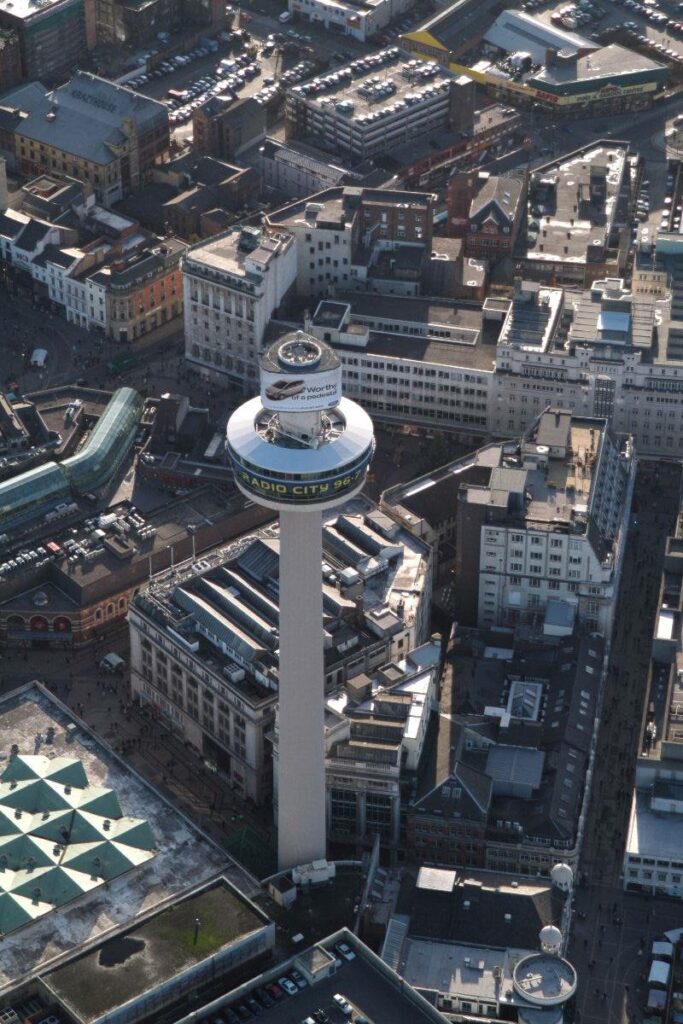
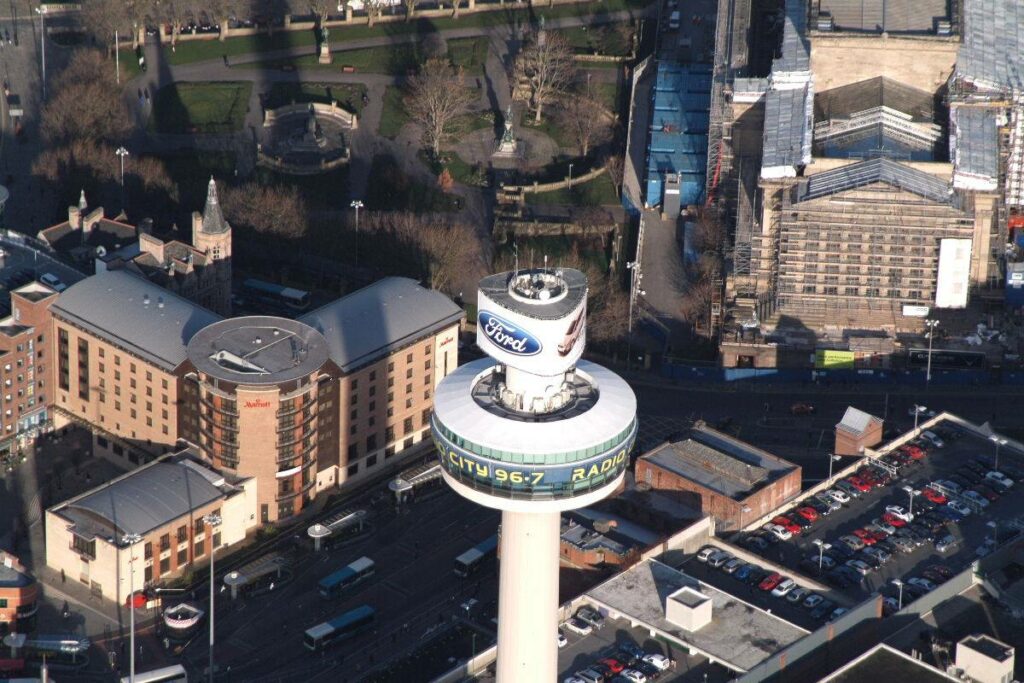
We designed, engineered and installed this system then manufactured and installed the fabric banners. This solution has worked well. Working at such a height required top notch rope access operatives, who did a great job. Albeit a scary thought for most of us, they thoroughly enjoyed it.
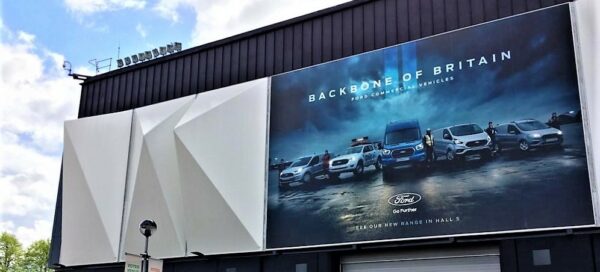
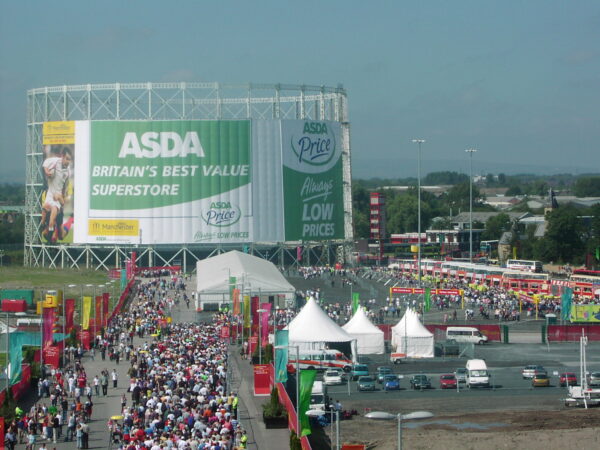
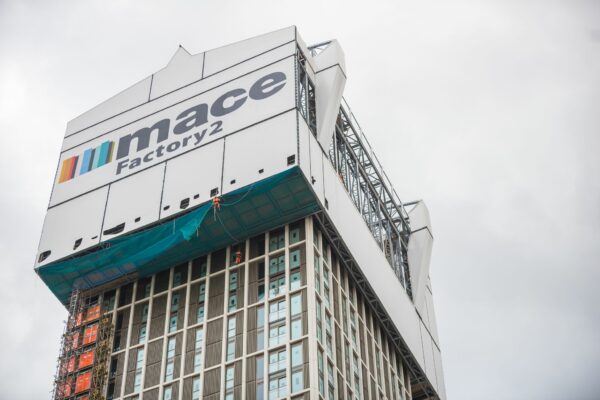
The pupils of St Michaels school in Kings Lynn look forward to their playtimes more than most. It is not because their lessons are boring however – in 2010 the school completed a playground remodelling program complete with a new colourful play surface, a tree planting scheme and a contemporary tensile fabric structure, which we were asked to provide.
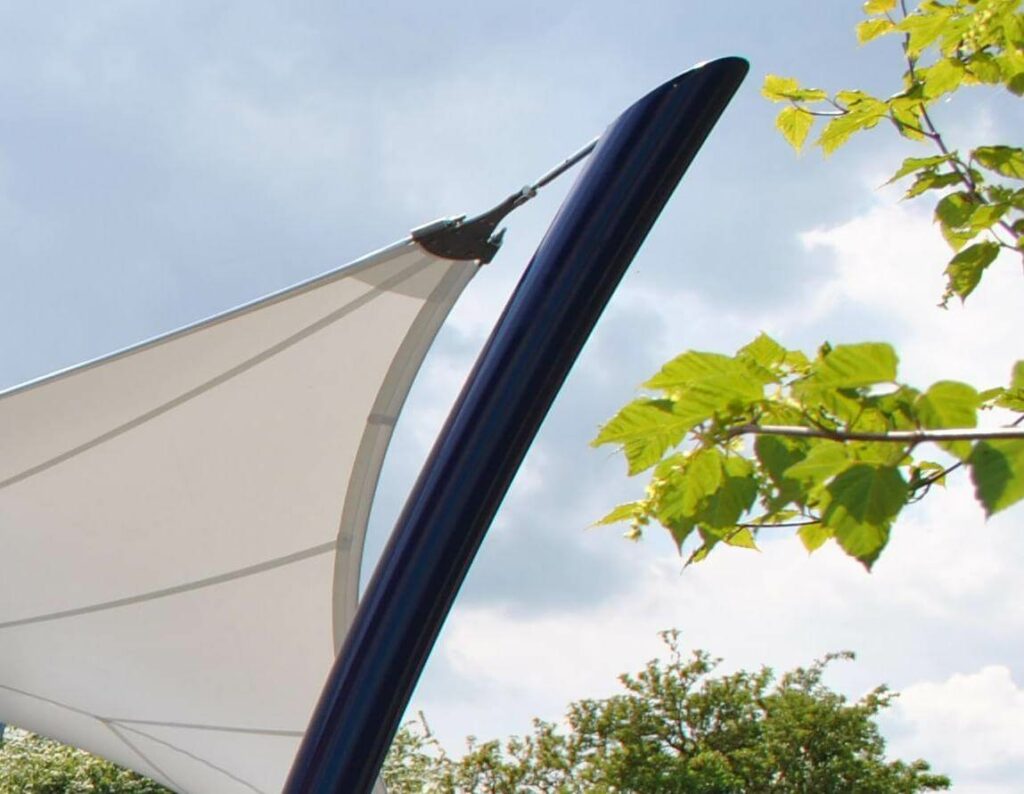
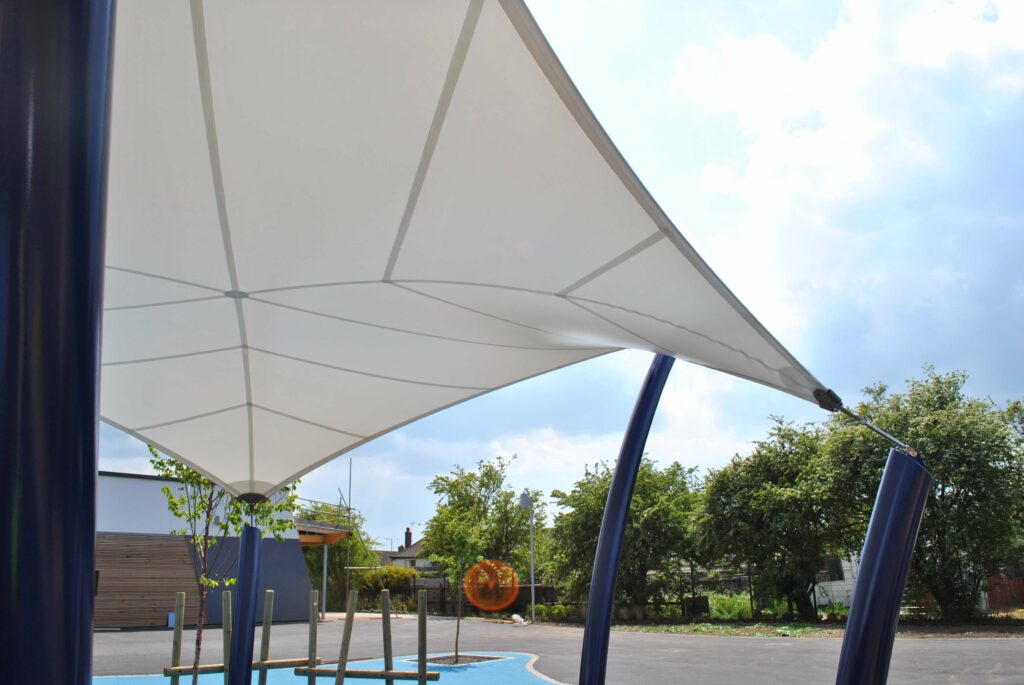
No tie-rods are needed on the steelwork for this structure, meaning there are no trip hazards for the children to injure themselves on whilst they recklessly chase each other around. Whilst the structure may be part of our pre-designed range the client could specify the exact RAL colour for the steelwork, in this instance they chose a rich, deep blue.
Choosing one of our pre-designed structures to maximise their budget, the Mendip 6P 500 presents a real focal point in the playground environment, the expressive curved steel masts creating a sculptural tensile fabric canopy that provides shelter from the sun and rain.



Our brief was to install temporary wraps to the columns at the entrance of Tate Britain, as a special feature linking in with the David Batchelor artwork exhibition taking place at the time. The wraps acted not only as an advertisment for the exhibition but were a vibrant and imaginative use of the existing buildings architecture.
The project was more complicated than it looked as each natural stone column is unique and therefore each one had to be individually surveyed by our climbers before patterning the fabric to suit. We manufactured the wraps from fabric printed to the colours specified by the artist and installed them at night, once again using ropes access techniques. The Tate Britain Museum were extremely pleased with the result of the finished product and the high quality.



Designed exclusively for couples, The Rendezvous Hotel is an idyllic and intimate Caribbean hideaway, set on a beautiful two-mile stretch of white sandy beach and surrounded by seven acres of tropical gardens. To cover an outdoor seating area where couples and honeymooners enjoy the finest cuisine right at the water’s edge, an open tensile fabric canopy was needed to provide both solar shade and the occasional rain protection.
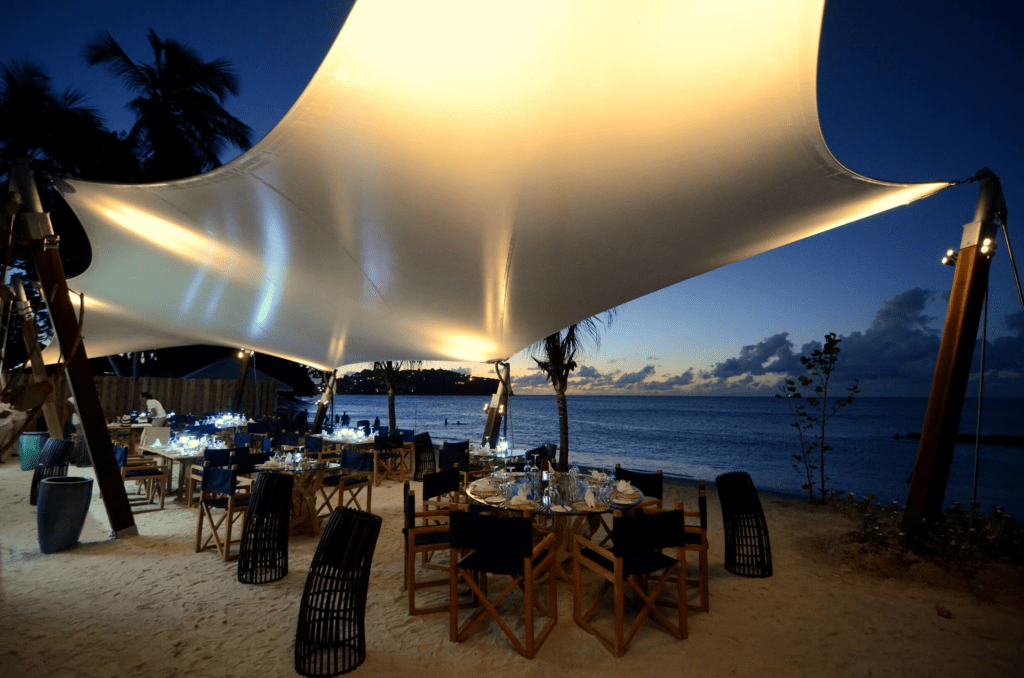
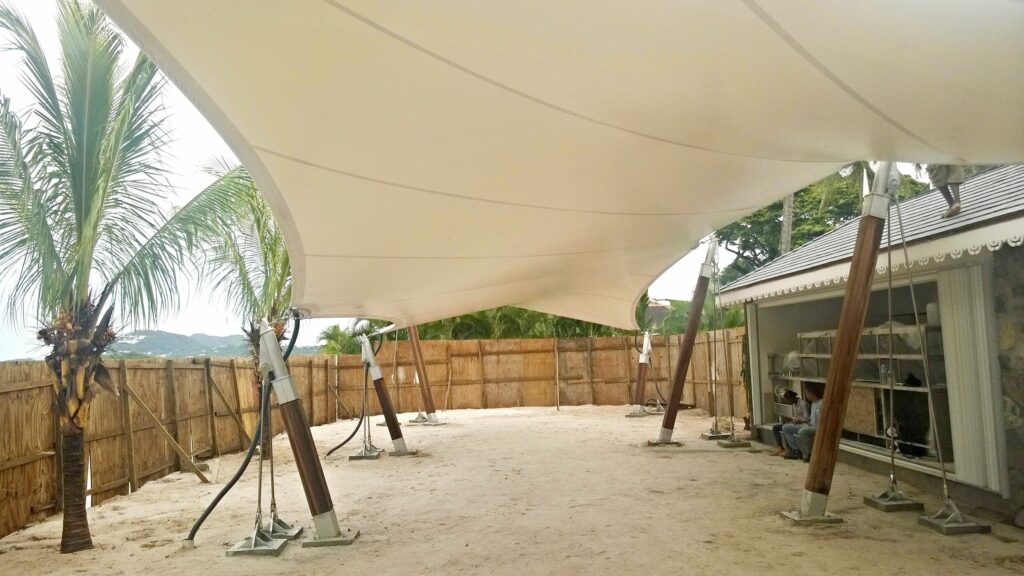
Based on one of our previous projects at Priory School, our pre-designed Malvern canopy was modified for this restaurant to ensure its high points were in the middle of the structure whilst its low points were on the edge. This was for practical reasons to ensure that staff members could easily access the seating area without the canopy getting in the way whilst serving customers. Also, due to the surrounding marine environment, we needed to use a very high specification of stainless steel to avoid any rusting. Finally, due to the risk of occasional hurricanes and high wind speeds, the restaurant needed the ability to dismount the fabric when necessary.
We may be biased, but the Toes in the Sand restaurant would definitely make it onto our bucket list. The addition of a tensile fabric canopy creates a more modern and stylish look to the restaurant whilst providing an intimate atmosphere for diners… who knew tensile fabric could be so romantic!



As part of their recent extensive renovations, Twycross Zoo wished to create a new focal point to the zoos entrance. To this end they commissioned a new visitor centre comprising a café, bar, gift shop and two new exhibits, one displaying their world renowned collection of wading birds and the other a flagship enclosure displaying the brand new snow leopard collection. Base were involved in the design and installation of this snow leopard enclosure.
The snow leopard enclosure faces onto the new visitor centre and is formed from galvanized steel perimeter posts and tie rods, supported by stainless steel cables and netting, keeping the people of Leicestershire safe from the snow leopards, and vice versa.
The snow leopards of Twycross zoo settled into their enclosure quickly and comfortably while visitors can enjoy the beautiful animals safely.



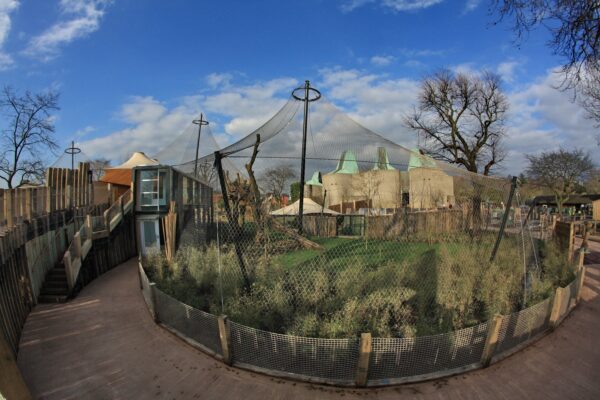
For our clients who run and manage zoos, animal welfare is their top priority. Most zoos exist as an opportunity not just for the public…
Following the success of the London 2012 Games, the Olympic Park in Stratford underwent another transformation to turn it into what is now known as Queen Elizabeth Olympic Park, fully reopening to the public in April 2014. Base were tasked with transforming an existing underpass in the south of the park (identified with the snappy name of U06) that was used as a pedestrian link to Pudding Mill Lane station. Consisting of a series of brick arches measuring 60 metres long, the underpass traverses directly underneath the Great Eastern main railway line.
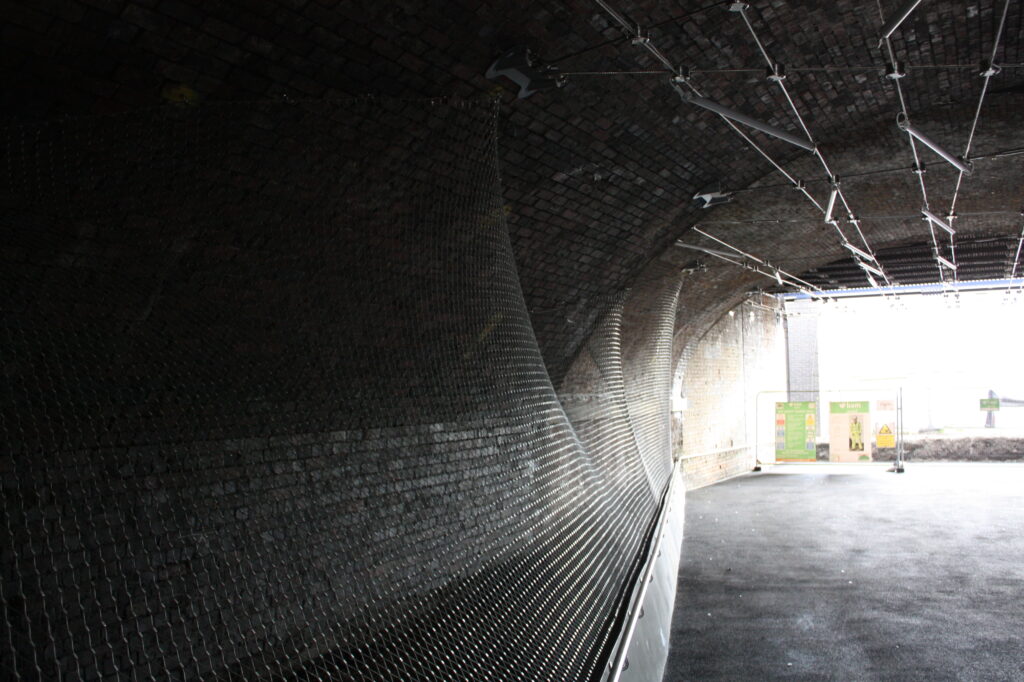
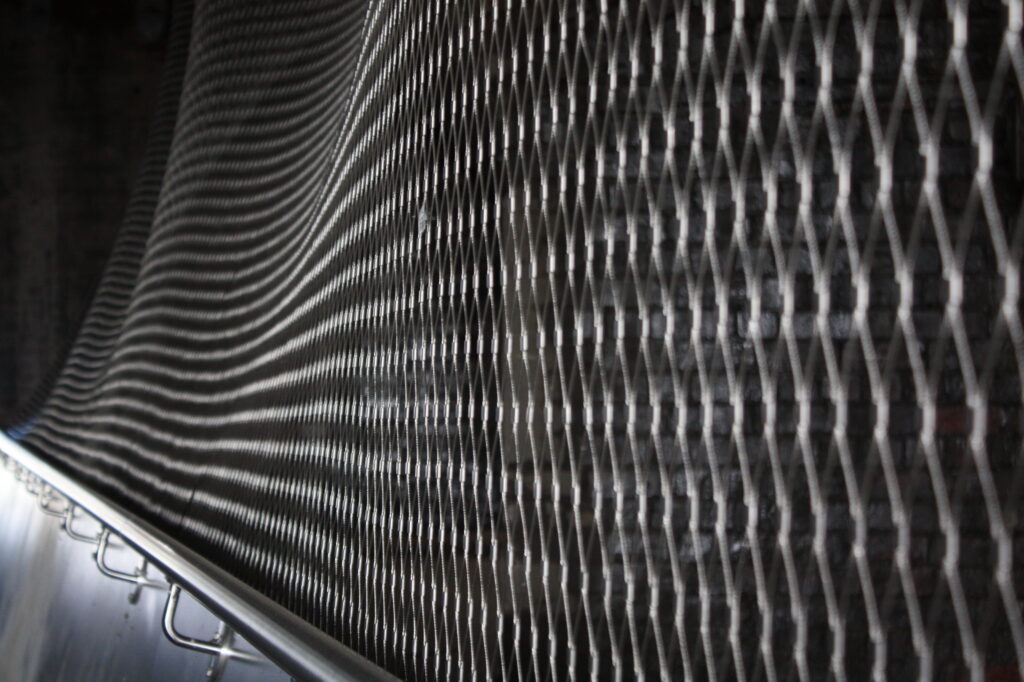
Base fabricated and installed a cablenet supported lighting system consisting of 61 waterproof fluorescent luminaires suspended from a tensioned steel wire catenary with electro-polished fittings. Running the length of the underpass the cablenet is fixed to the existing brick structure of the underpass with cintec anchors. Elements from an existing cablenet structure on the Park that had been dismantled were reused to maximise value for money and sustainability for the project.
An additional infill webnet closure panel was also set up along a section of the underpass. Running from the floor to fixing points on the vertical wall of the underpass, the flexibility of the mesh was utilised to create undulations as it attached to high and low points on the wall.



A wide range of shapes and fabrics for the internal structures were employed ranging from internally lit tensile lycra cones to multi-coloured silk flags for a Himalayan inspired feature.
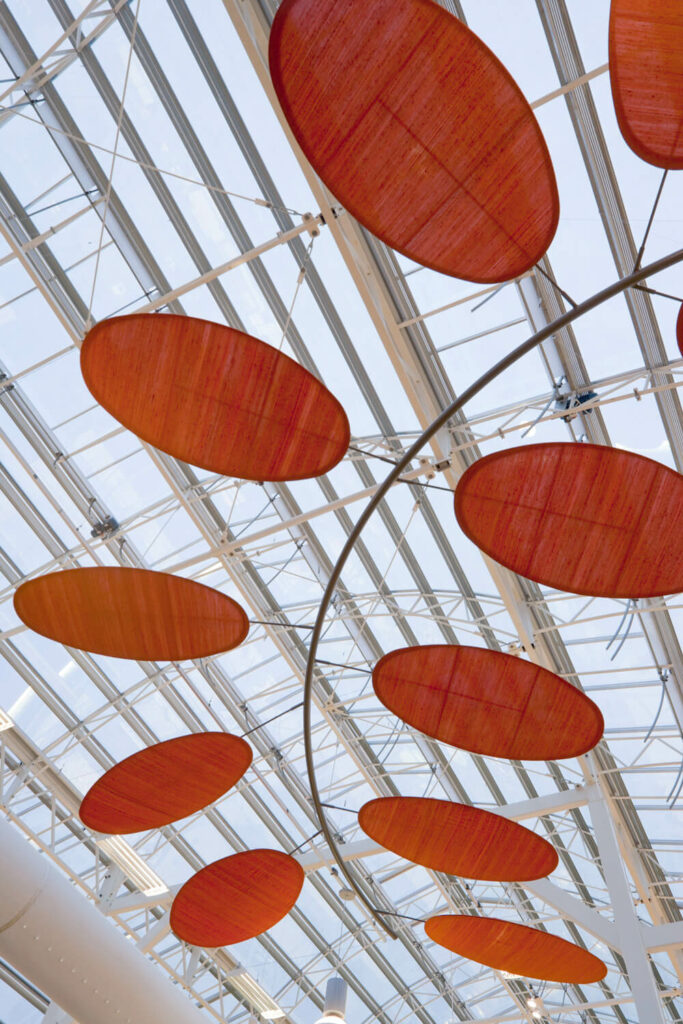
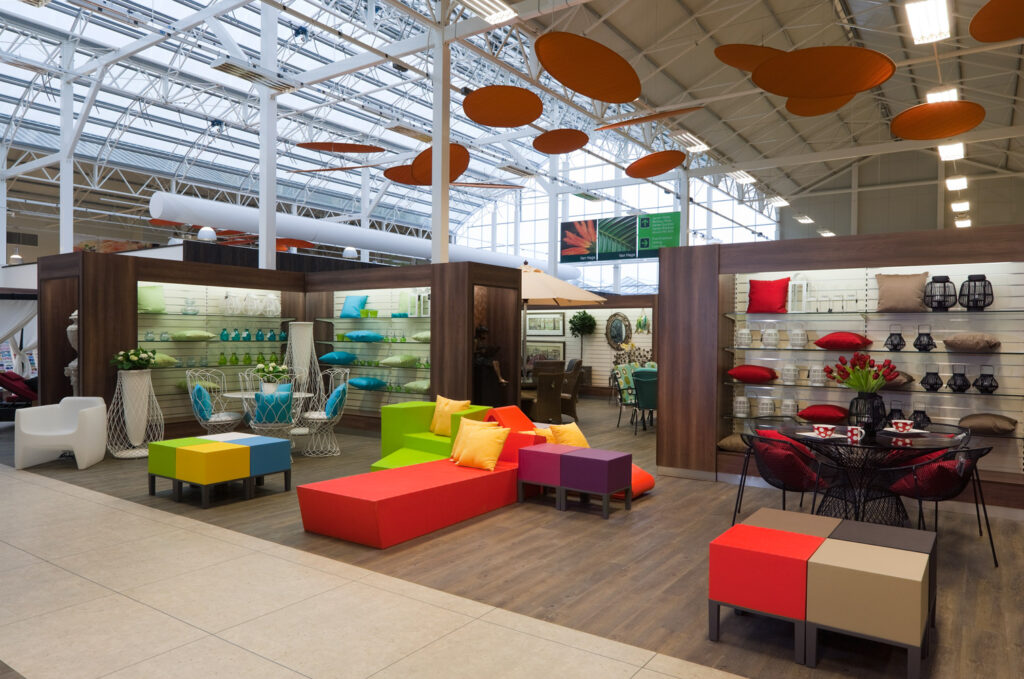
Tapered prisms were suspended above the check out desks wrapped in a leaf patterned fabric. A golden brown silk fabric was tensioned onto lightweight leaf shaped frames and was grouped on branches as well as being suspended in an array of twenty above a main aisle. Finally in an external courtyard triangular mesh fabric sails were tensioned between stripped bark timber poles set in concrete foundations to act as a sun shade.
Van Hage Garden Park is an excellent example of the range of fabrics and forms that can be used to good effect in one project.
With a maximum of 24 guests allowed at any one time and spacious bedrooms with en-suite bathrooms, this is the ultimate safari experience.



Catering for the luxury holiday market, Virgin Limited Edition is Sir Richard Branson’s private collection of beautiful retreats – including a private island, ski chalet, mountain retreat, catamaran, game reserve and a restaurant & private club. It is for the latest addition to the portfolio, Mahali Mzuri, that we were approached to help make extra special, a collection of 12 luxury tented suites in the Maasai Mara in Kenya.
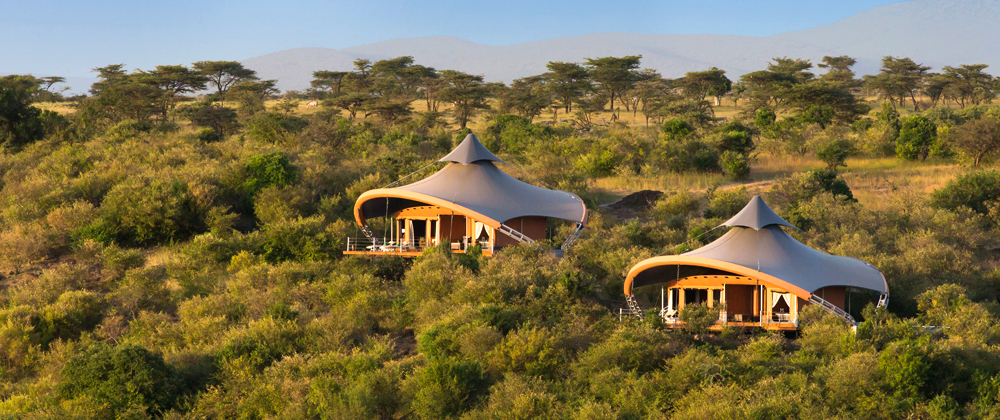
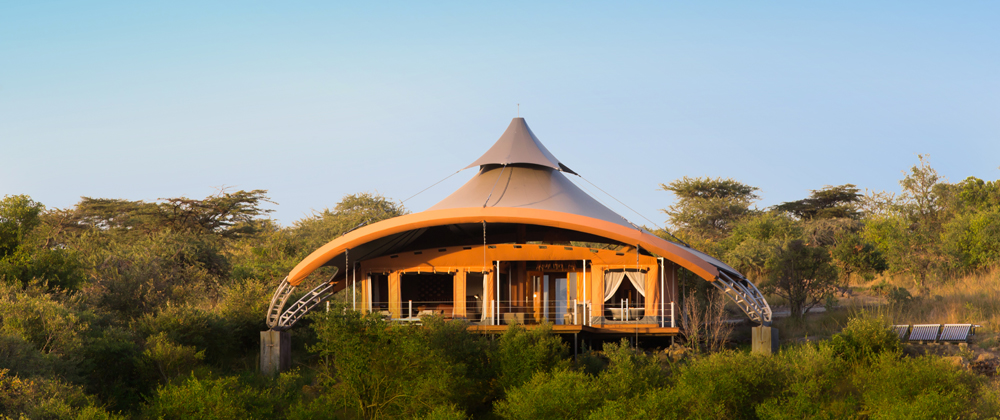
A conic PVC fabric roof with a cantilevered arch sits atop a raised platform, ensuring that the wildlife can only get so close to the snoozing human beings inside. A dark grey PVC fabric enables the structures to blend into the surrounding environment somewhat, preventing the new development from dominating the landscape. Detail designed and manufactured here in the UK, the bespoke structures were then successfully installed by a local workforce.
With a maximum of 24 guests allowed at any one time and spacious bedrooms with en-suite bathrooms, this is the ultimate safari experience.



This striking twin cone fabric structure shelters a new play area at the newly refurbished White Rose Centre in Leeds.
The design brief was to let as much light as possible through into the play area hence the choice to go for a silicone glass coated fabric. The design also had to accommodate some significant changes in ground level and very tight boundary conditions.
With careful preplanning the installation was smoothly achieved with two cranes in a short weather window. NG Bailey who manage the centre were very happy with the works “Very professional and well organised, brilliant!” Alan Barnsdale, NG Bailey.
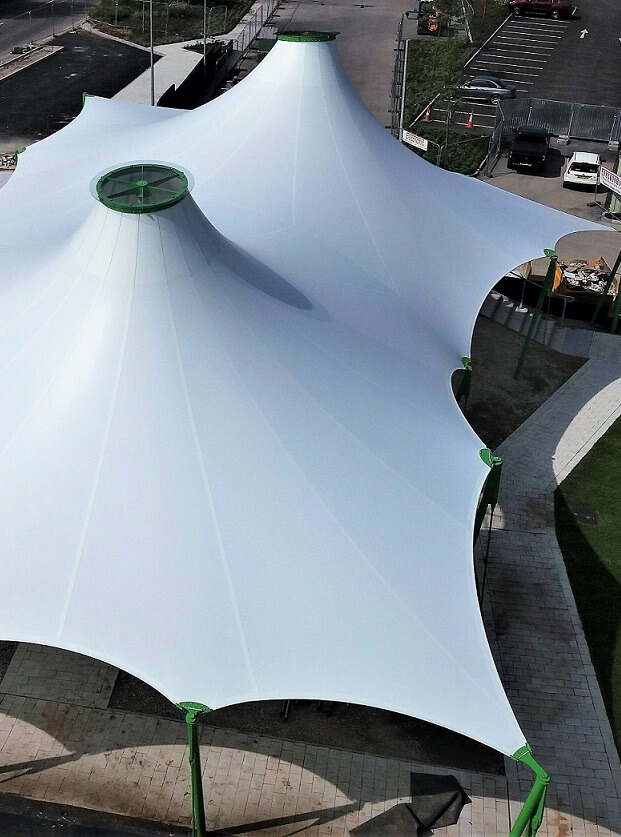



We manufactured and installed The Hub’s canopy which is suspended from the surrounding buildings, a tricky feat of engineering and a test of our 3D modeling systems. The hub is constructed from a three chord rolled steel truss which is clad with steel panels and supports a state of the art inflatable ETFE cushion.
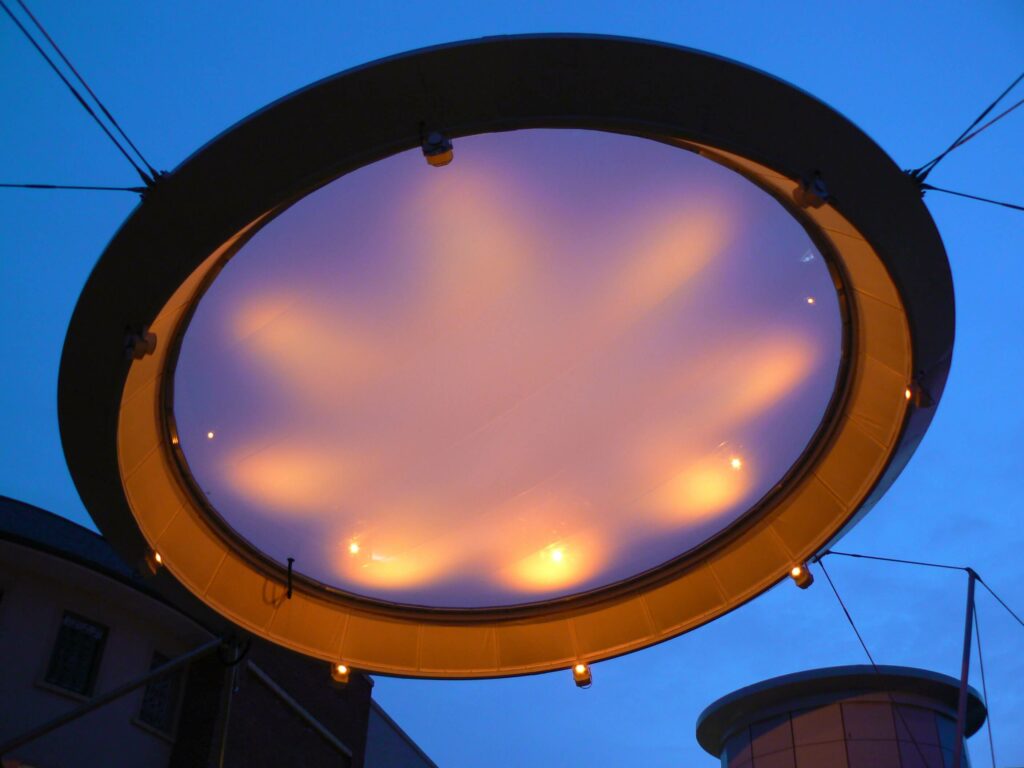
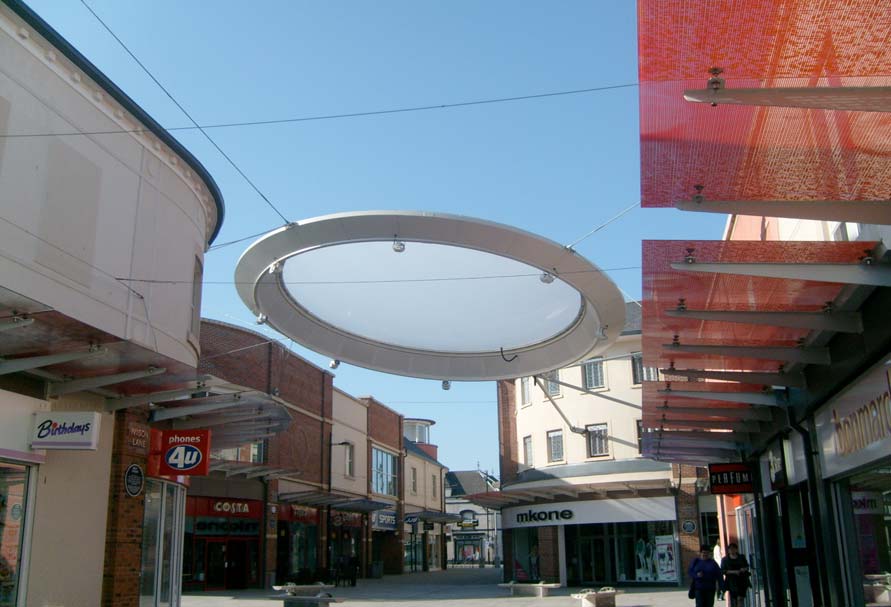
The Hub will be the first permanent outdoor 3D sound performance space in the country. The Hub’s 3D sound system can be configured to broadcast any live or recorded sound. A unique ambient ‘soundscape’ has been composed for The Hub by Illustrious Company. The soundscape will provide an immersive sound experience and will include elements of recordings made in and around Workington in October 2006.













